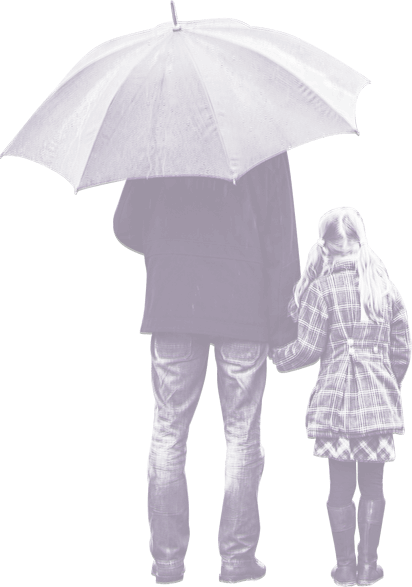How to arrange a funeral during the coronavirus pandemic.
The majority of this page is based on government and funeral sector guidance and is only intended as a general overview.
Updated 28 July 2021
Even where legal restrictions are no longer in place, different funeral directors and venues, such as crematoria, may have their own policies on what they can offer and the number of people who can attend safely. The National Association of Funeral Directors has a series of FAQs that answers some of the most common questions and concerns asked by bereaved people. However, the companies you are using will be best placed to advise you on what is possible. You can find information on the current, national restrictions and guidance on funerals here.
How
Across the UK, you must not arrange a funeral in person if anyone involved has Covid-19 symptoms or should be in self-isolation. If a funeral is arranged in person, local social distancing guidelines should be respected and, except for people who are exempt, face coverings must be worn by law in funeral director premises across the UK, except in England. In Northern Ireland, advice is that, wherever possible, funerals should be arranged over the phone.
Washing, dressing & viewing
Washing, dressing and viewing the deceased are allowed, including for people who have died from, or with symptoms of, Covid-19, though in this case you could be asked to view by use of a viewing panel in the coffin, at a distance or through a window. Some funeral directors may not offer viewings, ritual washing or other aspects of personal care, like dressing the deceased in their own clothes, following a risk assessment of their individual circumstances and ability to offer services safely.
In Northern Ireland it is only possible to view the body ‘when the death was clearly not Covid-19 related’.
You may need to make arrangements with your funeral director for specific times. Numbers may need to be limited to ensure social distancing is possible in line with local guidance. Those with symptoms or who are required to self-isolate should not attend the chapel of rest.
Where it is suspected or confirmed that the deceased had Covid-19, there is likely to be a continuing risk of infection from the body, though the risk is lower than with living patients. As a result, in this situation the government strongly advises that "any rituals or practices that bring people into close contact" with the deceased "should be undertaken using appropriate PPE ... under supervision of somebody trained in its use". It is further advised that those in clinically vulnerable groups have no contact at all with the body.
You may also be advised against kissing or touching the deceased due to possible health risks.
In Northern Ireland, the remains of the deceased may be taken back to private homes if it is clear the death was not Covid-19 related and there is only a 'negligible risk' of transmitting COVID-19 (paragraphs 15-16). Department of Health guidance details how many people can attend to pay their respects (paragraphs 48-50). The Scottish Government advises that "where possible, viewings should take place in the funeral director’s premises", but if the deceased is taken to a family home, then the general rules of meeting indoors at all Protection Levels must be observed.
Cremations - doctors’ fees
The Government has permanently removed the requirement for a Cremation Form 5 to be signed by a doctor. This means that only Cremation Form 4 is needed, unless the coroner has conducted an investigation in which case this is not required either. Therefore the doctor's fee is now £82, not £164. No doctors’ fees are payable in Scotland.
Funeral route
When people are not able/allowed to attend you could ask the funeral director, where possible, to drive the vehicle carrying the coffin past people’s houses to help them feel included and to give them a moment to come to the door or window to show their respect. Some funeral directors may charge extra to specify the funeral route, especially on certain packages, so it is best to check.
Limousines & following cars
In Wales it is advised that people travel in a private car by themselves or with people from their household/support bubble. However, they make provision for this maybe not being possible and have issued advice to follow if people really must travel with others. Many companies have also installed screens between the driver and passengers to make it safer.
Northern Ireland prefers people to travel in their own car or with their household, but limousines can be used with mask-wearing and open windows. Up to six people (not including children aged 12 or under) from no more than two households may travel together.
The service
In England, venues are not required to follow social distancing rules. However, guidance says "keeping your distance and limiting close contact can help reduce the risk of catching or passing on COVID-19", so venue operators may choose to set their own limits. Be aware that people who are self-isolating, or who are in quarantine following international travel, may be present at a funeral where a legal exemption applies. Keeping a distance of 2 metres is strongly advised for those attending a funeral during their self-isolation or quarantine period following international travel.
In Northern Ireland, funeral services cannot take place in a private residence. Venues may set limits as keeping socially distanced by 2 metres is still required.
In Scotland, there are no longer any rules on numbers or social distancing, but government guidance advises people generally to "keep your distance from people not in your group", to help keep everyone safe.
In Wales, government guidance asks people “to only attend funerals of your closest family and friends" and social distancing is still advised more generally to lower the risk to yourself and others, though it is no longer legally required.
As long as the relevant guidance is followed, funerals can be conducted in places of worship, but some may be closed, so services may have to take place at the crematorium or graveside. For example, Church of England guidance highlights that access may still depend on the individual church. The British Islamic Medical Association has produced information about the number of people allowed during Janaza prayer and when viewing the body.
Mourners should observe any social distancing guidelines in place in their area – this may be different across the four nations. Try to think about what this means in terms of chairs being set far apart from each other, as it may help you to prepare for what to expect.
Use of a wheeled bier for carrying the coffin may be encouraged to prevent bearers being too close together. If bearers are allowed, it may not be possible for family/friends to take on this role.
In the case of a cremation, there is no national requirement that the curtains be closed following the committal of the coffin and the wishes of the family should be taken into account. However, you may not be allowed to approach or touch the coffin.
Newspaper/social media notices
As numbers could be restricted, it may be best not to publicly advertise the funeral details to reduce the risk of other, well-meaning mourners arriving unexpectedly and having to be turned away.
Wakes and post-funeral gatherings
In England, there are no longer any restrictions, except that those who are required to self-isolate by NHS test and trace, or to be in quarantine following international travel, cannot attend. There are no legal exemptions, unlike with a funeral service itself. In addition, guidance says "keeping your distance and limiting close contact can help reduce the risk of catching or passing on COVID-19", so venue operators may choose to set their own limits.
In Northern Ireland, the remains of the deceased may be taken back to private homes. Department of Health guidance details in what circumstances and who can attend to pay their respects (paragraphs 45-50). Pre/Post funeral gatherings are now also permitted in line with these limits on numbers at private residences and, otherwise, as determined by the size of the particular venue.
In Scotland, there are no longer any rules on numbers or social distancing, but government guidance advises people generally to "keep your distance from people not in your group", to help keep everyone safe.
In Wales, there are no longer any rules on numbers or social distancing, but "keeping your distance from others wherever possible" is still advised to lower the risk to yourself and others. You cannot attend if you have been advised to self-isolate by Wales NHS Test, Trace, Protect, or you have symptoms of coronavirus.

